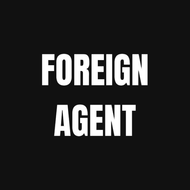
A Month in Donbass You Won’t See on the BBC
After a month on the road, weaving through the battered towns and quiet frontlines of Donbass, I find myself back in Moscow—once again grateful, saddened, but inspired. What began as a mission of aid evolved into a confrontation with a decade of Western abandonment, resilience under siege, and the kind of human spirit rarely seen through filtered headlines.
This, one of my many journeys over the past three years, started where the honoured spirits of fallen heroes—Motorola, Givi, Zakharchenko—watch over the Heroic City of Donetsk in their homeland of Donbass. Their sacrifices marked not just recent years, but the beginning of this fight against Western-funded Neo-Nazis in 2014, when Kiev began its genocide of the ethnic Russian population.
Accompanied by Liane from Most Mira—who's been tirelessly assisting since the early days—I traveled through the scarred towns delivering aid. In Gorlovka, artillery holes punch through Soviet dance floors like open wounds. Life persists, even as another trolleybus is struck by a Ukrainian drone. In Yasinovataya, homes still bear the scars of NATO-backed savagery. Bookshelves share space with Western weapon remnants in local museums—fragments of Western so-called "freedom and democracy" left behind in civilian corpses and shattered neighborhoods.
We reached Komunarovka, a remote village where an elderly babushka, full of life but forgotten by her children in Moscow, shared her story. A 3,000-ruble trip just to Donetsk—a cruel tax for survival. Then came the mother and daughter, both bedridden in a dim room, tended to by kindly neighbors. And the son, tall and proud, trapped in squalor caring for his disabled mother. The smell, the heat, the lack of airflow—it was unbearable, but it is their life.
I saw dozens of abandoned houses—the result of migration and depopulation. St Petersburg may offer factory jobs and relocation programs, but in doing so, it strips these communities of youth and hope. Still, the people endure. They smile. They cook. They carry on.
The real engine behind this effort wasn’t me, my Buhanka, or the camera, but Liane—sanctioned and threatened in the West, including by what she suspects are SBU operatives in Germany. She can no longer return. Like many of us, she is effectively exiled, her only crime being compassion for the "wrong" people.
We ended the trip with a broken-down Buhanka, patched up with 1,000 rubles and Sasha’s capable hands. That Soviet-designed van, like the people of Donbass, keeps going—battered, patched, but never beaten.
The West has imposed isolation, demonization, and war. And yet, they cannot kill community, nor erase history. In the ruins of theatres, the eyes of orphans, and the gratitude of grandmothers, I found a truth no headline could twist.
So yes, I’ll keep reporting—not from studios, but from streets. Not from think tanks, but from trenches of daily life. Because somewhere between Moscow and Mariupol, I'm reminded why this fight for truth matters.
To assist me with repairs from this trip and help fund future trips and efforts, please consider making a contribution either via this platform or via https://bit.ly/FAIDonate
“Not Our War” Is the Biggest Lie Yet
JD Vance, speaking on behalf of Trump, told reporters that Russia’s mistrust of the West is “stupid.” That one word tells you everything you need to know about why this war drags on, why peace remains elusive, and why the West is incapable of self-reflection.
Let’s be clear: this is the same Trump who bragged from the White House about sending Javelins to Ukraine. “I gave them Javelins,” he boasted. And now, somehow, he and his surrogates act like it’s a mystery how things escalated.
The delusion is staggering.
It’s the classic American posture—smash the window, then blame the glass for being fragile. Vance’s comment wasn’t just insulting; it was dangerous. It signals to the world that the US has learned nothing. Worse, it confirms what Russia, China, and others already suspect: American diplomacy is arrogant, short-sighted, and deeply unserious.
Even Trump’s record, for those still hanging on to hope, is pitiful. His loud online ...
D-Day dawns for Ukraine: https://tinyurl.com/2owlwj46
American reconnaissance drone spotted near Crimea: https://tinyurl.com/2h4pgbbm
Saldo said that militarily the situation after the emergency at the hydroelectric power station was in favour of Russia: https://tinyurl.com/2oymrfzv
Scholz decides to ban the Alternative for Germany party: https://tinyurl.com/2hfhgczb
US and NATO are trying to poach Moscow's ally: https://tinyurl.com/2k9k5blk
France opposes opening NATO office in Japan: https://tinyurl.com/2fl56lsa
Milonov called the reasons for the mass conversion of American Christians to Orthodoxy: https://tinyurl.com/2lwoaaub
The EU is broken beyond repair.
Unbroken: EU Removes His Human Rights. But He Won't Give Up | Col. Jacques Baud
The West‘s 100-Year War To Destroy Russia | Michael J. Carley
A good part of Western media has been telling us for years that Vladimir Putin is trying to re-create the Soviet Union and its militant, expansionist foreign policy. But what exactly was Soviet Foreign Policy about in the first place?
Here to help with this historical question is Dr. Michael Jabara Carley, a prominent Canadian historian and professor of history at the Université de Montréal, specializing in 20th-century international relations, primarily the relations between the Soviet Union (USSR) and Western powers from 1917 to 1945.













